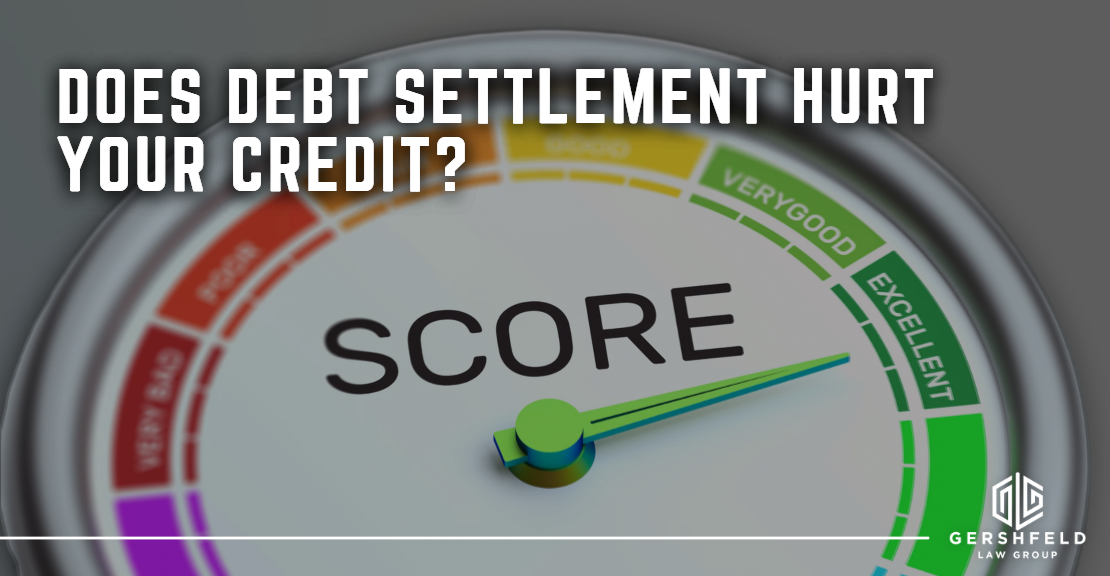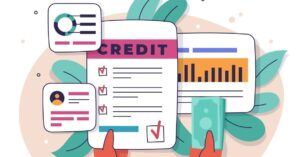Debt settlement involves negotiating with creditors to forgive a portion of your debt in exchange for partial repayment. While this can alleviate financial burdens, it will negatively impact your credit score. Hiring a debt-relief company can be costly, but even if you handle negotiations yourself, the process is risky. Why?
Well, many say that debt settlement typically lowers your credit score because it indicates you haven’t fulfilled your original loan agreement. So, does debt settlement hurt your credit? And if so, is the whole process worth it?
Does Debt Settlement Hurt Your Credit?
Debt settlement can harm your credit score, even though it helps reduce your debt. High credit scores reward timely payments according to the original credit agreement. However, a debt settlement plan alters or nullifies this agreement, leading to a negative impact on your credit score.
When the lender closes the account after settlement, your credit score is affected. This is because your available credit decreases, affecting your credit utilization ratio, and may impact your credit mix. Additionally, an involuntarily closed account is seen negatively by other lenders, making it harder to obtain credit in the future.
However, despite the potential drop in credit score, reducing your debt burden through settlement can pave the way for a more stable financial future. If it helps you regain control of your finances, it’s worth considering despite the short-term credit implications.
What Debts Can I Settle?
When considering which debts to settle, focus on older, seriously overdue accounts, especially those already in collections. Surprisingly, your credit score tends to drop less as debts become more delinquent. However, be cautious with debts sent to collections over three years ago, as settling them could reactivate the debt, showing it as a current collection. Always clarify this with your creditor before finalizing any agreement.
Remember, larger balances have a greater impact on your credit score. Settling small accounts, especially if you’re currently on larger loans, may not significantly affect your score. Also, settling multiple accounts can harm your score more than settling just one.
Is Debt Settlement Worth It?
Despite these drawbacks, debt settlement can be worth it if it helps you avoid bankruptcy and provides a clear path to becoming debt-free. When facing overwhelming credit card debt, it’s essential to consider factors beyond just your credit score:
- Current Credit Situation
Your credit may already be impacted due to:
- High debt-to-credit ratio: Balances nearing credit limits can lead to poor credit utilization scores.
- High debt-to-income ratio: Struggling with minimum payments can affect your credit score and borrowing capacity.
- Missed payments: Occasional missed payments can further harm your credit.
- Long-term Outlook
- Continuously struggling with credit card debt may prolong poor credit.
- Without debt relief, improvements in credit utilization or debt-to-income ratios may be minimal, and missed payments could persist.
- Benefits of Debt Relief
- Debt relief programs typically clear debt within three to four years with manageable monthly payments.
- While there may be an initial credit score impact, completing the program can lead to a fresh financial start and the potential for rebuilding credit in the future.
So, does debt settlement hurt your credit? Yes, it does. But, debt settlement also provides a practical and potentially faster route to becoming debt-free. It allows you to reduce your debt burden, maintain privacy, and pave the way for a brighter financial future by negotiating with creditors. Despite the temporary impact on your credit score, the long-term benefits of achieving financial stability and paying off debt make it a worthwhile choice.









